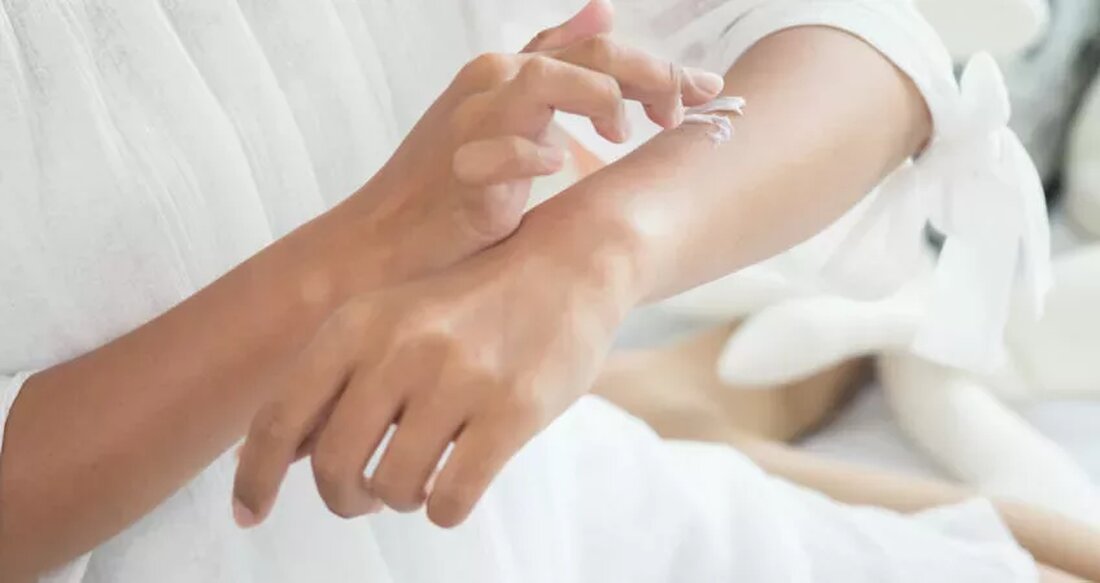Dry skin? Check out these natural tips
Dry, itchy, cracked skin… all of these things irritate the already sensitive nature of your skin. Dry skin is usually worse in winter, when low humidity and extreme cold combine to remove even more moisture from the skin. Wind, air conditioning, and excessive sun exposure can cause skin to peel and feel tight. Dry skin looks dull, especially on the cheeks and around the eyes. What causes dry skin? Dry skin can be caused by a number of factors. Genetics play a role in the development of dry skin. Oil glands that do not supply enough sebum cannot properly lubricate the skin. Dry skin can...

Dry skin? Check out these natural tips
Dry, itchy, cracked skin ... All of these things irritate the already sensitive nature of your skin. Dry skin is usually worse in winter when low humidity and extreme cold together remove even more moisture from the skin. Wind, air conditioning and excessive sunlight can cause the skin to peel off and feel taut. Dry skin looks dull, especially on the cheeks and around the eyes.
What causes dry skin?
Dry skin can be caused by a number of factors. Genetics play a role in the development of dry skin. Oil glands that do not supply enough sebum cannot properly lubricate the skin. Dry skin can be caused by environmental factors such as sun exposure, wind, cold, chemicals or cosmetics, or excessive bathing with harsh soaps. The oil glands do not provide the skin with sufficient lubricant. This dehydrates the skin. Diet also plays a role in lubricating the skin. A poor diet that lacks essential nutrients, especially vitamin A and B vitamins, can cause skin to become dry.
Skin conditions such as dermatitis and eczema can aggravate the skin, causing it to become dry, flaky and dull. Conditions such as hypothyroidism and diabetes can cause you to develop dry skin as a side effect or because of a medication you are taking. Diuretics, antispasmodics, and antihistamines can contribute to dry skin.
Care for dry skin
Dry skin requires special attention. Here are some special techniques you can use to cleanse, moisturize and protect dry skin.
cleaning
Like other skin types, dry skin should be cleaned regularly and gently. However, you must be very careful with the products and methods that you use to clean dry skin, as it can be easily worsened. Use a gentle organic cleaning agent that was specially developed for dry skin. Massage the cleaner gently into the skin and spray it with lukewarm water. Do not use too hot or too cold water. And don't rub with your hands or washcloth. Tap your skin slightly with a soft, clean towel.
Moisturizing
The cleaning of the skin removed dirt, deposits, make-up and pollutants, but also the natural oils that protect the skin are removed. A moisturizer increases the water content of the outer skin layers and helps to lock the skin's own moisture. Select a moisturizer for dry skin again and apply it generously after cleaning with a gentle massage movement. An organic moisturizer can be used for the skin on the body directly after a bath or shower. Apply generously moisture creams for the face and carefully pay attention to the neck and the areas around the eyes in which tiny lines and crow's feet are created.
Protect
Dry skin is very susceptible to environmental damage. Use sunscreen with an SPF of at least 15 every day to protect the skin from the sun's harmful rays. Wear loose and comfortable clothing to allow the skin to breathe and reduce irritation. A wide-brimmed hat can help protect delicate facial skin from the sun's ultraviolet rays.
Tips for caring for dry skin
People with dry skin also tend to have cracked lips. Maintain your lips by covering them several times a day and before going to bed with a gentle organic lip moisture cream. Use a humidifier to give your living or working environment moisture, especially in winter. Also use a face mask specially developed for dry skin weekly to remove blunt, dry skin cells. Drink a lot of water to supply your skin inside with nutrients and moisture.
Herbs for dry skin care
Aloe Vera has a soothing, healing and moisturizing effect. It also helps remove dead skin cells. Apply aloe vera to the affected areas. Calendula and comfrey have skin-softening properties. They can be used in a facial sauna or to make herbal or floral water. Comfrey also reduces redness and soothes irritated skin. Add lavender oil to the bath to soften and moisturize the skin. Tea tree oil can improve the condition of the skin. Add a drop to your moisturizer to smooth and nourish skin.
Results may vary. Information and statements are for educational purposes and do not replace the advice of your doctor. If you have a serious illness or health concerns, contact your doctor.

 Suche
Suche
 Mein Konto
Mein Konto
